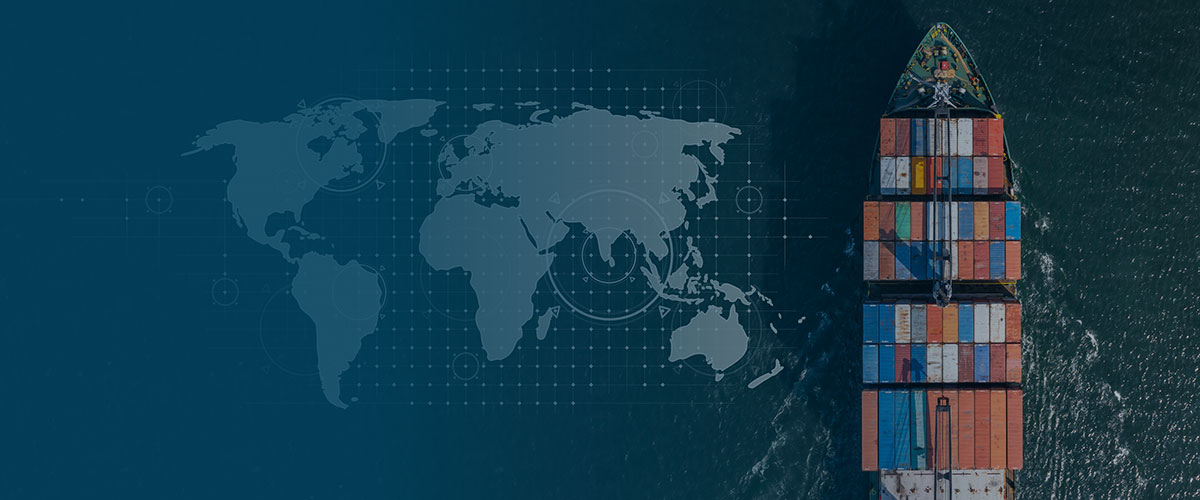As supply chains become more geographically dispersed and complex, major players therein, such as carriers, global freight forwarders, supply chain managers, and importers, are cognizant of the need to leverage technology to better manage the end-to-end transport process. Technology helps integrate various business processes within the supply chain, enhancing visibility, optimization, and competitiveness across different companies.
Over the past decade, in response to the growing number of geopolitical factors and disruptive events that have impacted international trade, manufacturers, importers, and logistics service providers are increasingly turning to technology to strengthen global supply chains.
Customs Clearance Process: Slow Shift Towards Technology
Supply chains comprise several distinct interconnected activities, such as shipping, warehousing, inland transport, inventory and distribution management, and customs clearance, each of which is generally handled by different entities. A supply chain includes every step involved in delivering a product or service to customers, detailing processes such as sourcing raw materials, production, and distribution. Transportation companies and intermediaries, as well as importers and exporters, generally tend to focus their digitization efforts on activities such as maritime transport and inland distribution that account for the bulk of supply chain costs.
Therefore, even though customs clearance is a critical and mandatory activity in the supply chain, industry stakeholders have not displayed the same sense of urgency when it comes to overhauling the current manual customs processes.
However, this is gradually changing, as customs clearance becomes more complicated and customs requirements more stringent. With global merchandise trade being affected by trade wars, sanctions, embargoes, protectionist policies, formation of trading blocs, and alternate procurement strategies (such as nearshoring, friendshoring, China+1, and Alt Asia), importers and customs brokers now need to navigate through an intricate maze of bureaucratic processes and onerous documentation requirements.
A customs broker assists importers with completing and submitting customs declarations, ensuring compliance with customs regulations, and paying duties and taxes on their behalf. By streamlining these activities, customs brokers reduce the burden on importers and provide valuable expertise in navigating customs requirements efficiently.
In this evolving landscape, the manual customs clearance process is often found wanting, as it is prone to human errors, delays, associated inefficiencies, and the risk of inadvertent customs violations. As a result, importers and customs brokers are increasingly including customs clearance and global trade management in the scope of their digitization initiatives, turning to customs clearance software solutions that automate the process of clearing customs and minimize potential pitfalls.
Benefits of Customs Clearance Software
Deploying customs clearance software offers substantial benefits, including:
Faster completion of customs formalities
Timely and complete submission of information
Freeing up valuable human resources
Accurate calculation and payment of customs duties
Customs-compliant operations
Smoother clearance of goods
Management of trade documentation
History of documents and clearance information for mandatory audit periods
Importance of Customs Clearance Software in Digitizing the Entire Supply Chain
In light of the context and benefits explained above, it is obvious that customs clearance software complements technological initiatives underway in other aspects of the supply chain. This helps complete the loop, effectively leading to the digitization of the holistic supply chain. Different supply chain models can benefit from the integration of customs clearance software, as it helps tailor the responsiveness and efficiency of the supply chain to meet specific operational objectives and constraints.
This ensures that gains accruing from streamlined transport and distribution flows are not negated due to sub-optimal customs clearance processes; rather, customs clearance tasks are digitized to compound the aggregate positive impact.
Importers, customs brokers, and freight intermediaries focusing on automating supply chains and customs clearance tasks have gained a competitive edge over competitors who have neglected to do so.
The benefits of faster and smoother customs clearance help accelerate supply chains and improve delivery-to-market cycles, besides lowering costs and minimizing the risk of non-compliance.
By adopting a resilient supply chain model, companies can proactively mitigate risks, enhance customer satisfaction, and gain a stronger competitive edge. With streamlined customs clearance processes in place, the entire supply chain becomes more robust, better positioned to handle disruptions, and optimized for efficiency in a complex global landscape.
How Technology Redesigns and Optimizes Supply Chain Management
The future of supply chains is inevitably digital, and customs clearance software will play a pivotal role in completing this transformation. Customs clearance, being a mandatory step in both export and import processes, holds a wealth of trade and shipment information — an untapped data set with immense potential. Once digitized, this data can revolutionize operations by enabling advanced trade document management, enhancing shipment visibility down to the SKU level, and providing precise insights into total landed costs.
Importers and customs brokers who recognize this opportunity and embark on their digital transformation journey early will gain a competitive edge. By leveraging technology to unlock the value of customs data, they can offer superior customer experiences, setting themselves apart in an increasingly competitive market. Conversely, those who delay their adoption of digital tools and continue to rely on manual processes risk falling behind and losing customers to more innovative competitors.
KlearNow: Turning the Vision of Futurized Supply Chain into Reality
As a pioneer in the logtech industry, KlearNow offers a diverse range of products that address various facets of the supply chain and cater to players of varying sizes.
KlearNow’s product portfolio also includes sophisticated AI and ML-powered software intended to automate and digitize customs clearance activities. Customs 360 and Customs Engine are both developed to address key clearance challenges such as manual data entry, limited visibility, and inefficient communication channels.
To understand which of these products suits your business better, click here for a free demo.

